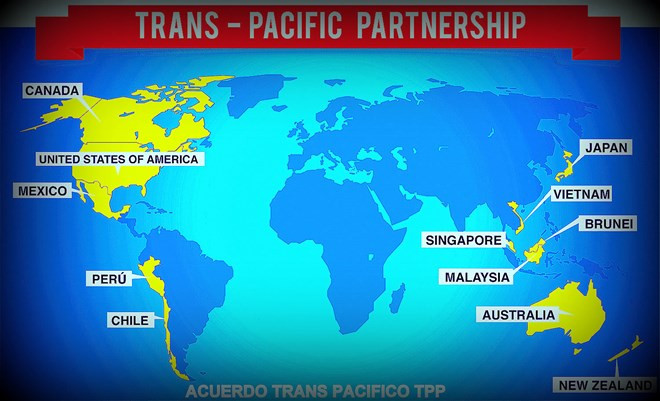 Right after taking office in January 2017, US President Donald Trump announced the country was pulling out the pact as it hurts US jobs and he prefers bilateral trade negotiations. (Photo: internet)
Right after taking office in January 2017, US President Donald Trump announced the country was pulling out the pact as it hurts US jobs and he prefers bilateral trade negotiations. (Photo: internet)Tokyo (VNA) – Chief negotiators of the 11 remaining countries ofthe Trans-Pacific Partnership (TPP) agreement began two-day talks in Tokyo,Japan on September 21 to discuss changes and freezes to parts of the dealfollowing the withdrawal of the US earlier this year.
Atthe meeting, Japanese chief negotiator Kazuyoshi Umemoto expressed his hopethat the countries would take a big step forward towards the Asia-Pacific EconomicCooperation (APEC) Economic Leaders’ Meeting scheduled for November in Vietnam.
He reaffirmed the significance of establishing a free and multilateral tradesystem based on high-standard rules in the Asia-Pacific which really fits the21st century.
“It is also important to continue to pursue the possibility of the US comingback to this framework and for that purpose it’s very important to implementthe TPP as early as possible”, he added.
The talks are expected to cover proposals such as a clause to preservecopyrights and trademarks for 70 years after the creators die and a clause thatcalls TPP members to open public procurement, allowing foreign companies tojoin bids.
Another issue that needs to be addressed is a clause stating that the TPP canonly come into force after six economies, accounting for 85 percent or more ofthe original 12 signatories’ combined gross domestic product, complete domesticprocedures. So far, just Japan and New Zealand have ratified the deal. As theUnited States alone represents more than 60 percent of the initial members’GDP, it is impossible for the pact to come into effect under the current terms.
The TPP was inked inFebruary 2016 by Australia, Brunei, Canada, Chile, Japan, Malaysia, Mexico, NewZealand, Peru, Singapore, the United States and Vietnam, covering around 40percent of the global economy.
Right after takingoffice in January 2017, US President Donald Trump announced the country waspulling out the pact as it hurts US jobs and he prefers bilateral tradenegotiations.
Currently, Japan is the largest economy among the remaining negotiators. Tokyowishes to reach an agreement among the countries to maintain the pact which hadtaken long time of negotiations before it was inked in February 2016.
However, it is possible that some countries can call for re-negotiations onimport and export tariffs.-VNA






























